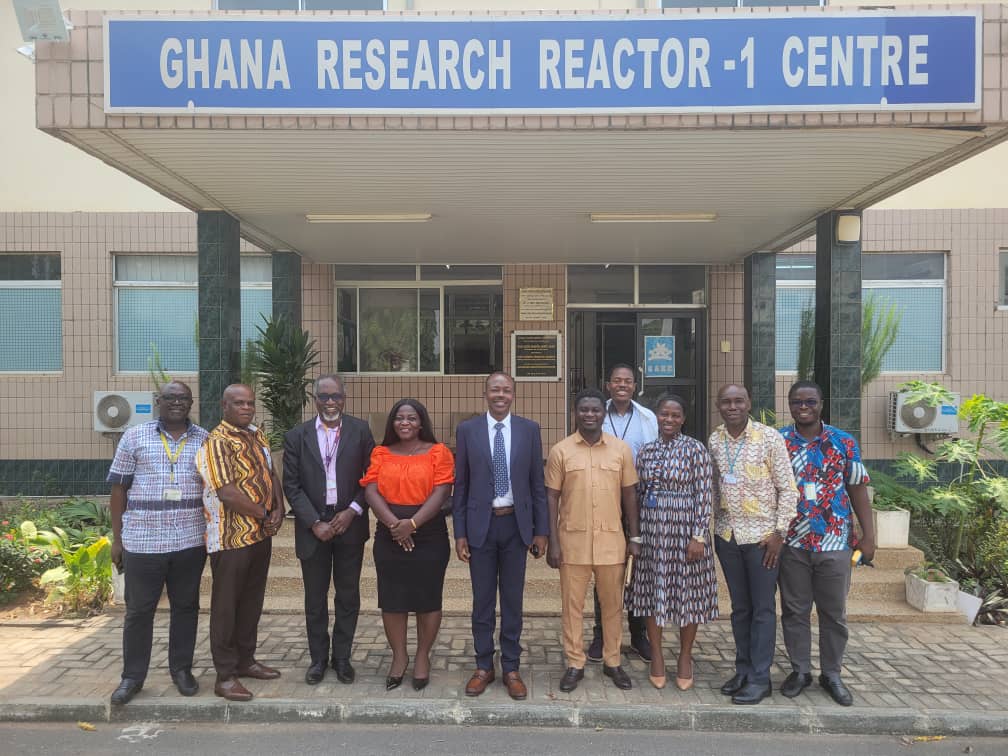|
Getting your Trinity Audio player ready...
|
Mr Benjamin Arthur, the Chief Executive, Fair Wages and Salaries Commission, Thursday pledged the Commission’s commitment to collaborating with all stakeholders to address concerns and promote fair compensation practices in Ghana.
Mr Arthur said this in a statement issued to the Ghana News Agency after a working visit to the Ghana Atomic Energy Commission (GAEC) and the Nuclear Regulatory Authority (NRA). The visit was to enhance collaborations with key institutions in the country.
The meeting at GAEC provided a platform for the institution to showcase its technological and scientific innovations, including gamma irradiation and the Black Soldier Fly Technology, which offer significant benefits in agriculture and waste management.
Mr Arthur urged the two institutions to redevelop their scheme of service to reflect the various grades and enable a compensatory salary structure. The parties reaffirmed their commitment to collaboration and agreed to take proactive steps to address salary and conditions of service challenges.
Professor Samuel B. Dampare, the Director General, GAEC, highlighted the Commission’s remarkable progress in health, agriculture, medicine, industry, and space science. He said GAEC was recognised globally as one of the leading institutions contributing to sustainable nuclear science and technology.
GAEC was strategically established with a focus on research and development, innovation and technology transfer, human resource development, education, and training, he said. Nana Boateng, the Director for Commercialisation and Communication, GAEC, explained that the Commission was working on protecting and managing its intellectual property of research output.
This is promote the transfer of technology to the private sector to support the government’s agenda of industrial development. Dr Nii Kwashie Allotey, the Director General, NRA, spoke about the high attrition rate, attributing it to low remuneration, which he noted could have dire consequences for the work of the Authority if the trend continued. The Authority, in 2022, boasted of a staff strength of 95 but currently has 78 workers.
Dr Allotey said it took a lot of time and resources to train the experts and, therefore, filling vacant positions came at a huge cost. Prof Emmanuel Ampomah-Amoako, the Director of the Nuclear Installations Directorate at the NRA, said the Authority’s activities involved developing regulations, reviewing applications, conducting regulatory inspections, and enforcing compliance with nuclear and radiation safety standards.
Key sectors with radiation applications in Ghana, he said, included agriculture, health, education/research, construction, telecommunication, archaeology, power, oil and gas, mining, and law enforcement. The Authority, he added, played a crucial role in national security, preventing unauthorised access to radioactive materials, and ensuring the safety of the public, workers, and the environment.
Source: GNA
CHECK THIS: Ghana’s Rising Star Bravaddo Releases Thought-Provoking Track “CAREFUL”


